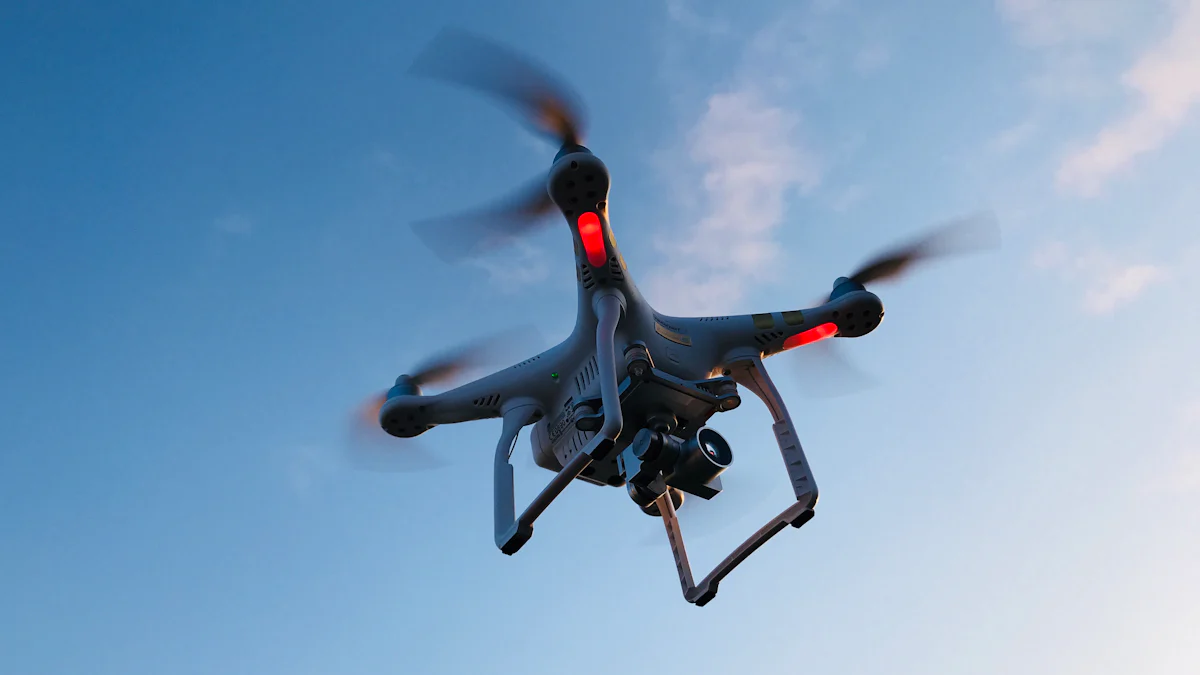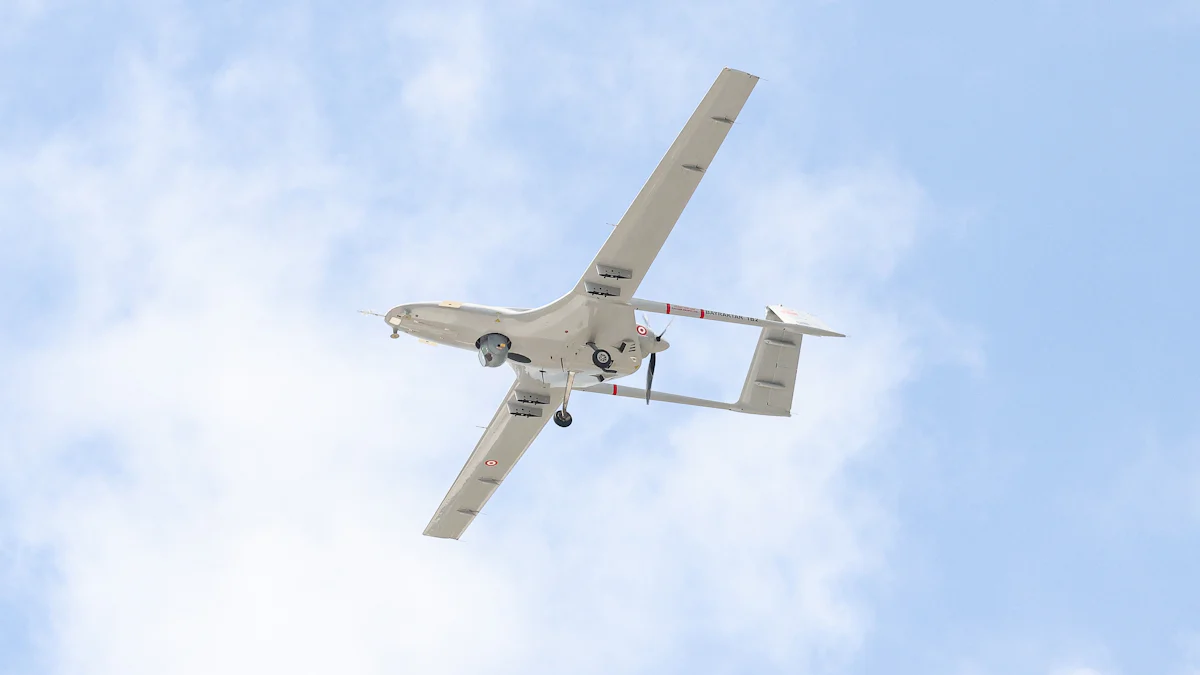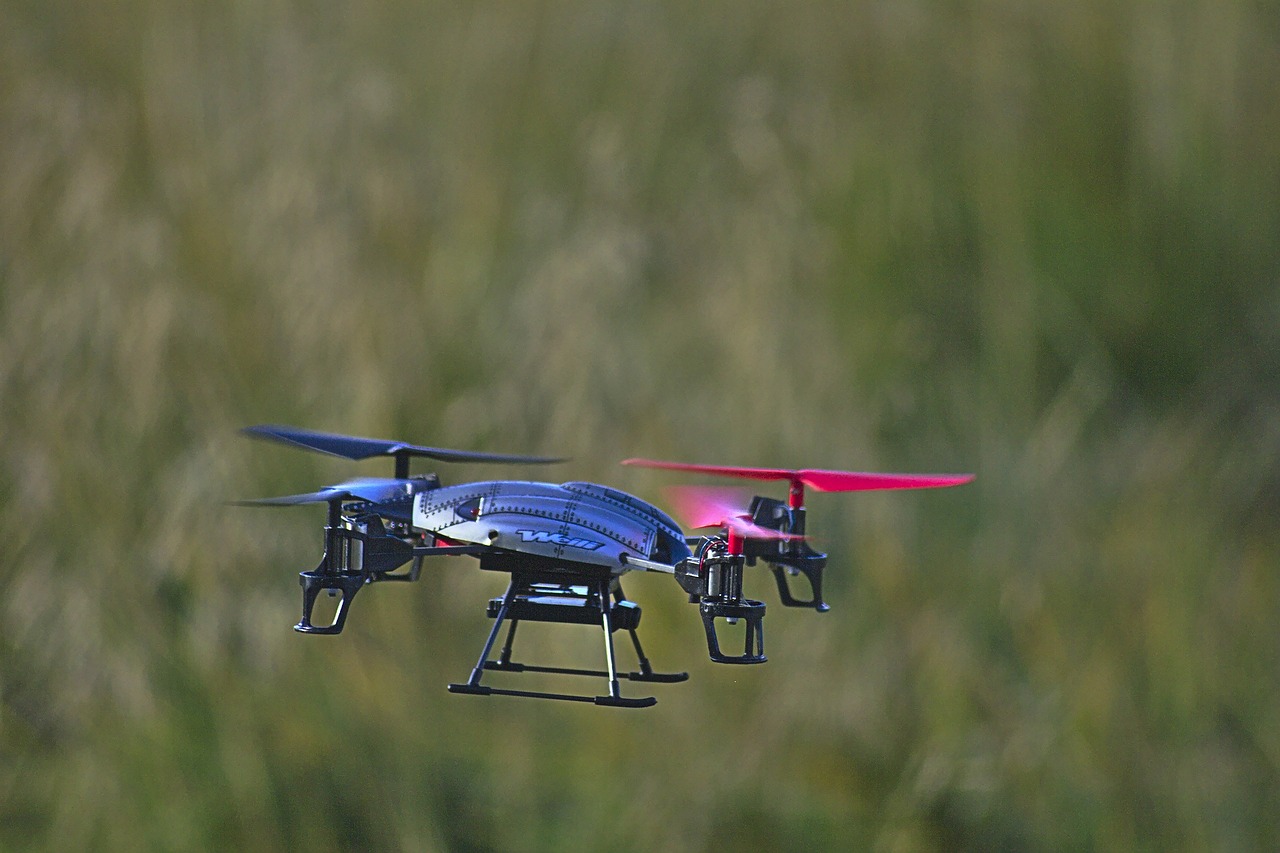Logistics Reimagined: The Impact of Autonomous Cargo Drones Unmanned Cargo Aircraft

Unmanned cargo aircraft, also known as freight UAVs, are autonomous vehicles designed to transport goods without the need for a human pilot. Logistics plays a crucial role in the global economy by ensuring the efficient movement of products from manufacturers to consumers. The integration of unmanned cargo aircraft into logistics promises to revolutionize this field by offering faster, more reliable delivery services and reducing operational costs.
Applications of Unmanned Cargo Aircraft in Logistics

E-commerce and Retail
Last-mile Delivery
Unmanned cargo aircraft have transformed last-mile delivery in e-commerce. Companies like Natilus and Dronamics develop large autonomous cargo drones for middle-mile delivery. These drones enable same-day delivery to remote areas faster and cheaper. The reduction in emissions also makes these deliveries more environmentally friendly. Zipline uses drones to transport critical medical supplies directly to health facilities in remote areas. This system ensures timely delivery of life-saving blood products and essential vaccines. Blueflite and DroneUp collaborate to change last-mile delivery services. Their fast and storage-equipped drones ensure quick and safe deliveries within 15 miles of partnered stores.
Inventory Management
Unmanned cargo aircraft streamline inventory management in retail. Autonomous drones can transport goods between warehouses and distribution centers efficiently. This process reduces the need for human intervention and minimizes errors. Google's Wing and UPS have expanded UAV delivery services to hospitals. This expansion helps in transporting medical samples and specimens quickly. Swiggy uses food delivery drones to ensure timely transportation of food to communities. These advancements improve inventory tracking and reduce stockouts.
Medical and Emergency Supplies
Rapid Response
Unmanned cargo aircraft play a crucial role in rapid response during medical emergencies. Zipline's healthcare delivery drones transport critical medical supplies to remote areas. These drones complete a delivery every 70 seconds, ensuring timely access to essential medicines. Google's Wing and UPS use UAVs to transport medical samples and specimens. This service ensures that hospitals receive necessary supplies without delay.
Remote Area Access
Unmanned cargo aircraft provide access to remote areas that traditional vehicles cannot reach. These drones can fly over geographical barriers without the need for large infrastructure. Zipline's drones deliver life-saving blood products and vaccines to health facilities in remote locations. This capability ensures that even the most isolated communities receive necessary medical supplies.
Industrial and Manufacturing
Just-in-Time Delivery
Unmanned cargo aircraft enhance just-in-time delivery in industrial and manufacturing sectors. Autonomous drones can transport raw materials and components directly to production lines. This process reduces delays and ensures that manufacturing processes run smoothly. Companies like Natilus develop heavy-lift commercial cargo carrier drones. These drones transport air cargo into remote locations, providing a powerful solution for supply chain logistics.
Supply Chain Optimization
Unmanned cargo aircraft optimize supply chains by reducing transit times and operational costs. Autonomous drones can complement or replace surface transport in tactical operations. This flexibility offers advantages over traditional means of transportation. The use of unmanned cargo aircraft reduces the number of trucks on the road, leading to lower emissions and reduced traffic congestion. These benefits contribute to a more efficient and sustainable supply chain.
Benefits of Unmanned Cargo Aircraft

Cost Efficiency
Reduced Labor Costs
Unmanned cargo aircraft eliminate the need for human pilots. This reduction in labor costs significantly lowers operational expenses. Companies can allocate resources more efficiently without the burden of pilot salaries and training. Autonomous systems manage flights, reducing the need for extensive human oversight.
Fuel Efficiency
Unmanned cargo aircraft often use advanced propulsion systems. These systems are designed for optimal fuel efficiency. Traditional cargo aircraft consume more fuel due to their larger size and weight. Autonomous drones, with their streamlined designs, require less fuel. This efficiency translates into cost savings for logistics companies.
Operational Efficiency
24/7 Operations
Unmanned cargo aircraft can operate continuously. Human limitations do not restrict these aircraft. Continuous operations ensure faster delivery times and increased reliability. Companies can meet customer demands more effectively with round-the-clock service.
Reduced Transit Times
Unmanned cargo aircraft offer faster delivery times. These aircraft can bypass traffic congestion and geographical barriers. Direct flight paths reduce transit times compared to ground transportation. Customers receive their goods more quickly, enhancing overall satisfaction.
Environmental Impact
Lower Emissions
Unmanned cargo aircraft produce fewer emissions than traditional cargo planes. The use of electric or hybrid propulsion systems contributes to this reduction. Lower emissions help combat climate change and promote sustainability. Logistics companies can achieve their environmental goals more effectively.
Reduced Traffic Congestion
Unmanned cargo aircraft alleviate road traffic congestion. By transporting goods through the air, these aircraft reduce the number of trucks on the road. This reduction leads to decreased traffic jams and lower pollution levels. Urban areas benefit from improved air quality and less crowded streets.
Challenges and Considerations
Regulatory Hurdles
Airspace Management
Airspace management poses a significant challenge for unmanned cargo aircraft. Governments must develop clear guidelines to ensure safe and efficient use of airspace. Variability in regulations across countries complicates global operations. Operators need to navigate complex regulatory landscapes to scale their businesses internationally.
Safety Standards
Safety standards are crucial for the operation of unmanned cargo aircraft. Authorities must establish stringent safety protocols to protect the public. Compliance with these regulations ensures the safe transport of goods. Individual governments have developed guidelines to prioritize safety in drone delivery operations.
Technological Limitations
Battery Life
Battery life remains a critical limitation for unmanned cargo aircraft. Current battery technology restricts the range and duration of flights. Researchers are working on developing enhanced battery technology to extend flight times. Improved batteries will enable drones to cover longer distances and carry heavier payloads.
Payload Capacity
Payload capacity is another technological constraint. Unmanned cargo aircraft have limited carrying capacity compared to traditional cargo planes. Engineers are exploring ways to increase payload capacity without compromising efficiency. Innovations in materials and design will help overcome this limitation.
Public Perception and Acceptance
Privacy Concerns
Privacy concerns affect public acceptance of unmanned cargo aircraft. People worry about drones invading their privacy during operations. Companies must address these concerns by implementing strict privacy policies. Transparent communication about data collection and usage can help build public trust.
Job Displacement
Job displacement is a concern related to the adoption of unmanned cargo aircraft. Automation in logistics could lead to job losses for human workers. Companies need to consider the social impact of this technology. Workforce retraining programs can help mitigate the effects of job displacement.
Future Prospects
Technological Advancements
AI and Automation
AI and automation will drive the future of unmanned cargo aircraft. AI systems can optimize flight paths and manage air traffic. Automation can handle loading and unloading processes. These advancements will increase efficiency and reduce human error. Companies will benefit from faster and more reliable operations.
Enhanced Battery Technology
Enhanced battery technology will extend the range of unmanned cargo aircraft. Current batteries limit flight duration and payload capacity. Researchers are developing new battery materials and designs. These innovations will allow drones to fly longer distances and carry heavier loads. Improved batteries will make unmanned cargo aircraft more versatile.
Regulatory Developments
International Standards
International standards will play a crucial role in the adoption of unmanned cargo aircraft. Uniform regulations will ensure safe and efficient operations worldwide. Governments and industry leaders are working together to create these standards. Consistent guidelines will help companies navigate global markets. This collaboration will promote the widespread use of unmanned cargo aircraft.
Policy Support
Policy support from governments will accelerate the growth of unmanned cargo aircraft. Incentives and funding for research and development will drive innovation. Regulatory bodies will need to streamline approval processes. Clear policies will encourage investment in this technology. Government backing will boost confidence in the market.
Market Growth
Emerging Markets
Emerging markets will see significant growth in the use of unmanned cargo aircraft. Developing countries will benefit from improved logistics and supply chain solutions. Unmanned cargo aircraft can reach remote areas with limited infrastructure. These markets will experience faster and more reliable deliveries. The adoption of this technology will enhance economic development.
Investment Trends
Investment trends indicate a strong future for unmanned cargo aircraft. Venture capital firms and corporations are investing heavily in this sector. Funding supports the development of new technologies and business models. Increased investment will lead to rapid advancements and market expansion. The unmanned cargo aircraft market is expected to be worth over $18 billion by 2031.
Unmanned cargo aircraft have shown immense potential in revolutionizing logistics. These aircraft enhance last-mile delivery, inventory management, and rapid response for medical emergencies. The benefits include cost efficiency, operational efficiency, and reduced environmental impact.
The future of logistics will likely see significant advancements due to unmanned cargo aircraft. Technological innovations and favorable regulatory frameworks will drive growth. Companies like Dronamics Airlines and Natilus lead the way in developing efficient delivery services.
The integration of unmanned cargo aircraft into logistics promises a more efficient, reliable, and sustainable future.
See Also
Unveiling the Potential: AI Transforming Logistics
Future of Logistics: Tech Innovations Unveiled
Navigating the Future: Digital Tech in Logistics
